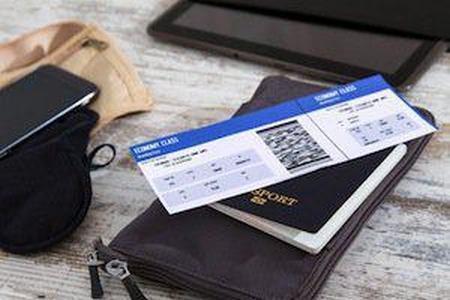Traveling on a Green Card
 It is not uncommon for lawful permanent residents (LPRs, or ‘green card’ holders) of the United States to sometimes forget they do not enjoy all the rights of citizenship. While most of the time, the restrictions on LPRs are minimal, there are times when they do directly interfere with plans that a U.S. citizen would have no trouble executing. Traveling is one of the most common instances of potential problems. LPRs planning travel need to be aware that there are rules they must obey, lest they be refused re-entry afterward.
It is not uncommon for lawful permanent residents (LPRs, or ‘green card’ holders) of the United States to sometimes forget they do not enjoy all the rights of citizenship. While most of the time, the restrictions on LPRs are minimal, there are times when they do directly interfere with plans that a U.S. citizen would have no trouble executing. Traveling is one of the most common instances of potential problems. LPRs planning travel need to be aware that there are rules they must obey, lest they be refused re-entry afterward.
Short Trips & Vacations
If an LPR wants to take a brief trip abroad, for pleasure or to visit family, he or she can generally do so with minimal hassle. He or she simply needs to ensure that all the requisite documents are acquired to return—namely, an unexpired green card and any identifying documents the U.S. Customs & Border Patrol may request—for example, a copy of a marriage certificate if you have changed your name since obtaining permanent resident status.
Be advised that it is also plausible, depending on the length of stay abroad and the destination to which you went, that you may be asked about your activities in the country. You are not legally required to answer; however, if you do not, the officer may refuse you re-entry, especially if he or she suspects that you have engaged in illegal activity. Sometimes this may be inappropriate for the situation, and sometimes it may be appropriate. However, the best way to get through is to be polite, and if necessary, file a complaint with the appropriate authorities later on.
Long Trips & Possible Immigration Problems
The potential problems are much more widespread if you plan a trip out of the United States that lasts longer than one year, or if you do so while in the process of adjusting your status. In order to be a lawful permanent resident, it is mandatory that you make your home in the United States—that is, that you maintain your home and connections to U.S. society, even while abroad. If you leave the country for more than one year and do not obtain a re-entry permit or returning resident visa (SB-1), there is a presumption that you have abandoned your LPR status.
It is also important to remember that if you one day want to apply for citizenship, a period of continuous residency and physical presence is required, and if you are gone from the country for more than six months at a time, that continuous period may be in jeopardy. It is possible to apply to preserve your residence for naturalization purposes by completing Form N-470, but otherwise, the ‘continuous’ requirement will almost certainly not be satisfied.
Seek Experienced Assistance
Travel is enjoyable for many people, and sometimes it may also be necessary, such as for family obligations back home. Nonetheless, it is important to preserve your immigration status and your rights, even if you have to leave the U.S. for a time. Consulting a knowledgeable immigration attorney can make that process less confusing and intimidating. The dedicated DuPage County immigration attorneys at Mevorah & Giglio Law Offices are well versed in the intricacies of LPR status, and are happy to advise you as to the best course of action for you. Contact us today to set up a free consultation.
 English,
English,
 Spanish,
Spanish,
 Polish,
Polish,
 Urdu
Urdu













 Make a Payment
Make a Payment



